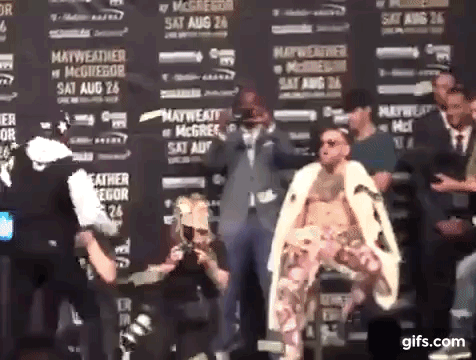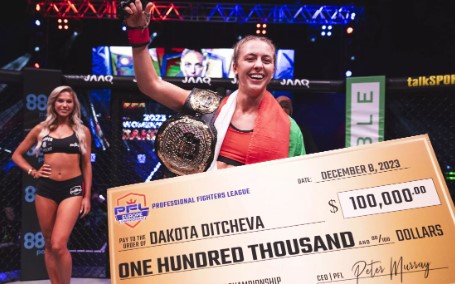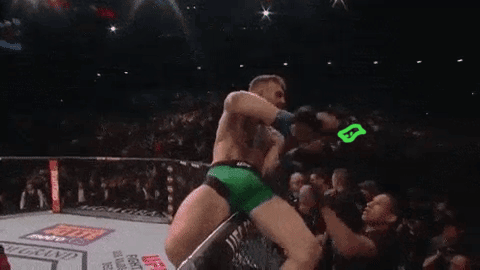Mixed Martial Arts (MMA) is a fast-paced, high-intensity sport that requires extreme physical and mental toughness. Athletes who step into the octagon are not only risking their health and safety, but they also face another daunting challenge – financial instability.
According to the athletic, 70.5% of fighters surveyed expressed that finances were their biggest concern. This lack of pay leads to debt, which can have a significant impact on an athlete’s career and personal life.
This article explores the hidden struggle of MMA fighters as they try to balance their passion for the sport with crippling debt and why many of them are unable to make a sustainable living from their profession.
The High Costs of Training
Training for MMA is no easy feat. It requires countless hours of intense physical training, specialized coaching, and various equipment and MMA gear. All of these come with a hefty price tag as MMA requires more than just one discipline, making it more expensive to train for compared to other sports.
In addition to the costs of training, fighters also have to cover expenses such as travel, accommodation, and medical bills for injuries sustained during fights. This can quickly add up and put a significant strain on their finances.
The Low Pay in MMA
Despite the growing popularity and commercialization of MMA, many fighters struggle to make a decent living from the sport. Unlike other professional athletes, who are often paid large sums for their performances, MMA fighters have much lower payouts.
For example, according to Forbes, the average income is dependent on ‘Wage Share’ meaning that the fighters only receive a percentage of what their performance or ‘draw’ generates.

For stars like Conor Mcgregor that can bring in millions of pay-per-view buys, this means a large payout. But for the majority of fighters, who don’t have nearly as many fans or successes, their income can be incredibly underwhelming.
At around 20% of the revenue of the event, many fighters struggle to even make a livable wage. With UFC prelim fighters reportedly only making $10,000-$30,000 per fight, it’s no surprise that many have to work other jobs or rely on sponsorships to make ends meet.
If they miss out on fight opportunities due to injuries or lack of bookings, it can significantly impact their income for the year.
The Dark Side of Sponsorship
Sponsorship is often seen as a crucial source of income for MMA fighters. However, it’s not always as glamorous as it seems. Many fighters experience difficulty securing sponsors due to the controversial image often associated with the sport.
Additionally, even when they do secure sponsorship deals, the terms and conditions can be less than ideal. Some sponsors may require fighters to promote their products in ways that conflict with their own personal brand or values.
How Dakota Ditcheva Overcame Crippling Debt
Dakota Ditcheva is a rising start in PFL Europe, with an impressive record of 10 wins and zero losses at the time of writing. However, her success in the cage was not always reflected in her bank account.
Like many aspiring MMA fighters, Dakota faced crippling debt as she pursued her dream of becoming a professional athlete. She was 3-4 grand in debt to her mother, who had been supporting her training and career.
“You have to accept the fact that you’re not going to have much money, you have to accept that in this sport”
Dakota Ditcheva
Despite her financial struggles, Dakota continued to train and compete, determined to make it in the world of MMA. She encourages other fighters to be smart with their finances and find ways to make extra income outside of fighting.
As an example, she has started her own MMA brand called Dare Fight Wear. By encouraging younger fighters to push through the early financial struggles, she hopes to pave the way for a more stable future for the sport. She says that things get easier as you rise up the ranks…

The Importance of Financial Literacy and Transparency
With the high costs of training and potential financial struggles in the early stages of a career, it’s crucial for MMA fighters to have a solid understanding of financial literacy. This includes budgeting, managing debt, and establishing multiple streams of income.
Many fighters come from humble backgrounds and may not have had the opportunity to learn about financial management. Organizations like MMA Fighters Association (MMAFA) are working towards providing resources and support for fighters in this area.

By educating athletes on how to manage their finances, they can avoid falling into debt and potentially damaging their career. Furthermore, they are petitioning for organizations to transparently show how much they make and what percentage is taken by promoters, so fighters can negotiate better contracts.
How MMA Fighters Can Reduce Their Debt
Debt consolidation, financial planning, and seeking advice from financial experts are just some of the ways MMA fighters can reduce their debt. By consolidating multiple debts into one manageable payment, they can lower their interest rates and save money in the long run. Seeking advice from financial experts can also help fighters create a budget and develop a plan to pay off their debt in a timely manner.
Moreover, it’s important for fighters to carefully consider their expenses and prioritize where their money goes. This may mean making sacrifices in the short term, but it can lead to a more stable financial future in the long run.

Working with companies such as Americor can also provide extra support and resources for fighters looking to reduce their debt.
Remember, just because you or your teammates are chasing a career in MMA, doesn’t mean you have to be financially irresponsible. By taking the time to learn about financial management and seeking support from organizations like MMAFA, fighters can protect their future and secure their finances for years to come. Fight debt and don’t let it take you down.




